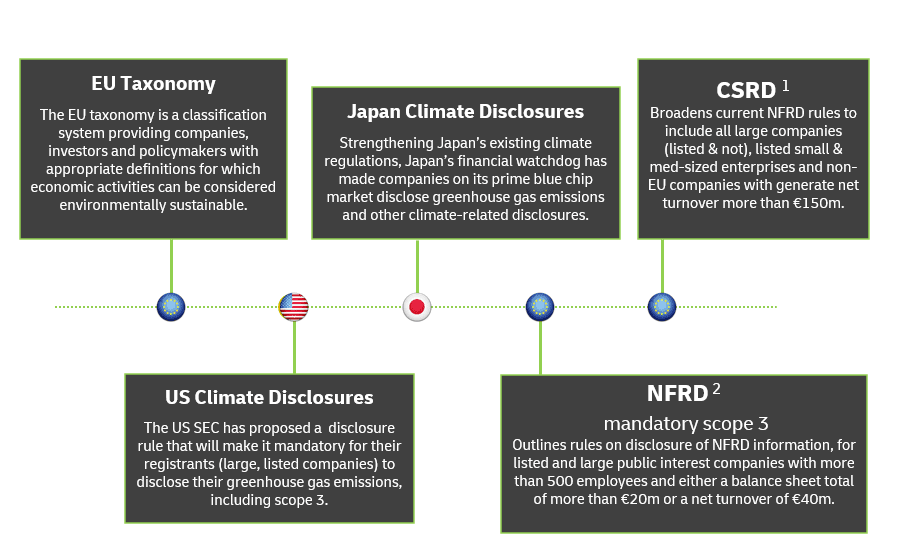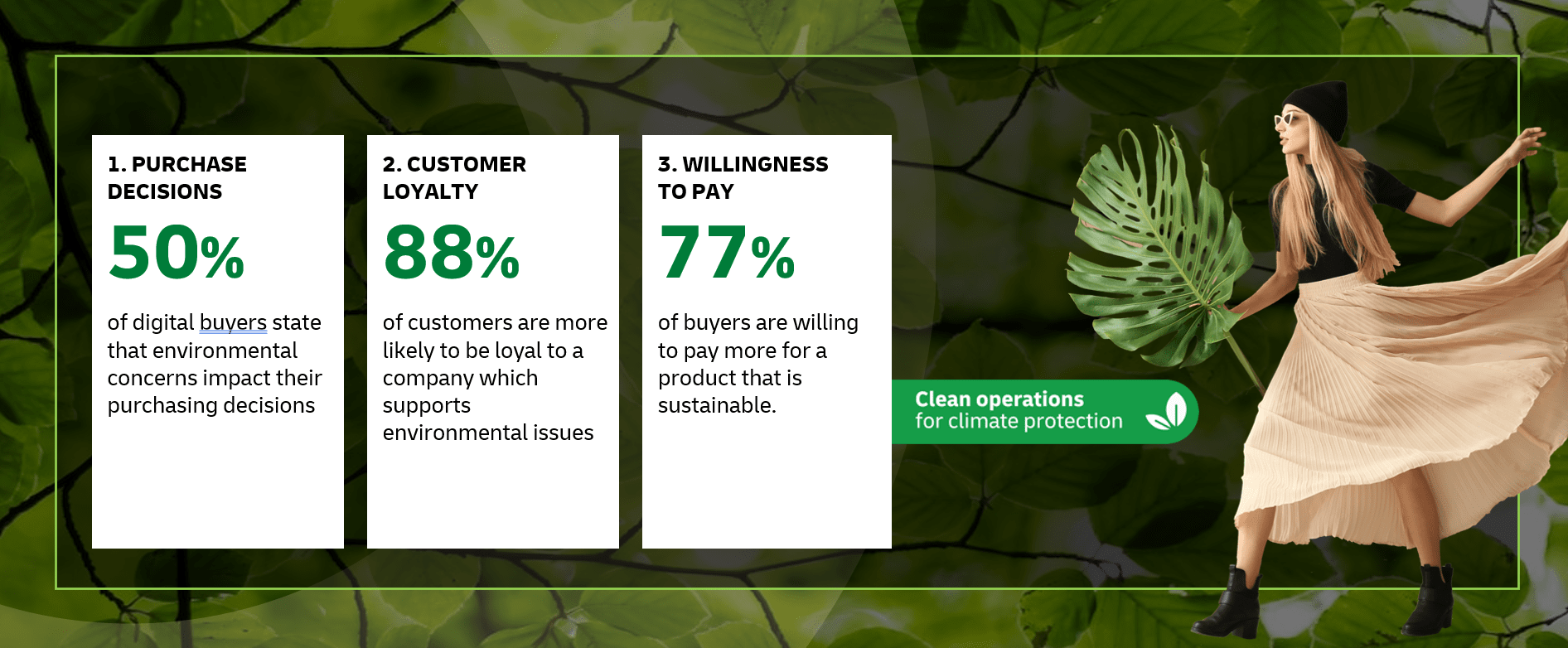GoGreen Plus
Sustainable aviation fuel: Your path to greener credentials!
What is GoGreen Plus?
DHL Express has recently launched GoGreen Plus a dedicated solution to help businesses reduce the carbon emissions associated with their shipments through the use of Sustainable Aviation Fuel.
SAF is a biofuel that is produced from renewable sources such as vegetable oils, animal fats, waste products, and agricultural crops. SAF is specifically designed to be used as a substitute for traditional jet fuel and can reduce greenhouse gas emissions by up to 80% compared to fossil fuels.
By offsetting, you compensate the CO2-emission outside of your own company. For example by planting trees. By insetting via GoGreen Plus, you directly reduce CO2-emissions of transportation within your own supply chain.
In MyDHL+ environment you can invest in Sustainable Aviation Fuel to reduce 30% of your shipment’s carbon emission by one click
DHL Express’ Sustainability Targets
Clean operations for climate protection

Target >30% sustainable aviation fuels blending by 2030.
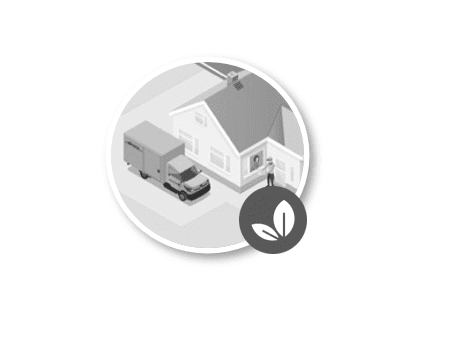
Electrify 60% of last-mile vehicles and grow sustainable fuel share in line-haul to >30% by 2030
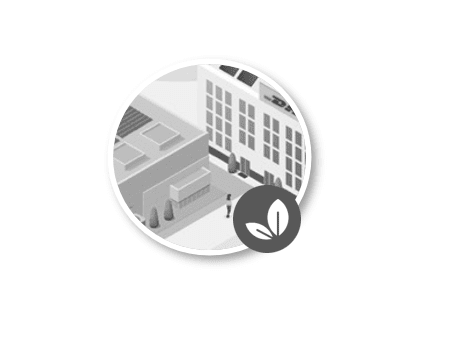
Starting in 2021, carbon neutral design for all new buildings
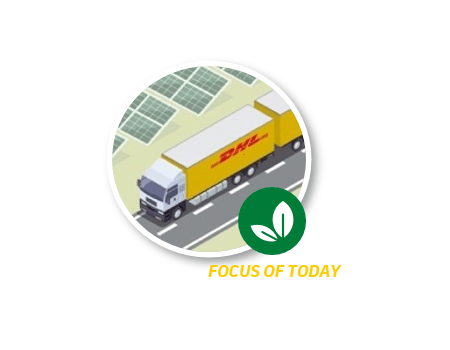
Offer green alternatives for all of our core products/solutions
Why it is - Now More Than Ever – important to focus on sustainability
We’re extremely passionate about sustainability at DHL. Not only are we fervent about driving sustainability within the logistics industry, but we’re also working hard to help our customers improve their credentials too.
Your Environmental Footprint
The difference between scope 1, 2 and 3 footprint - What are other companies doing
The Green House Gas Protocol Corporate Standard classifies a company’s GHG emissions into three 'scopes'
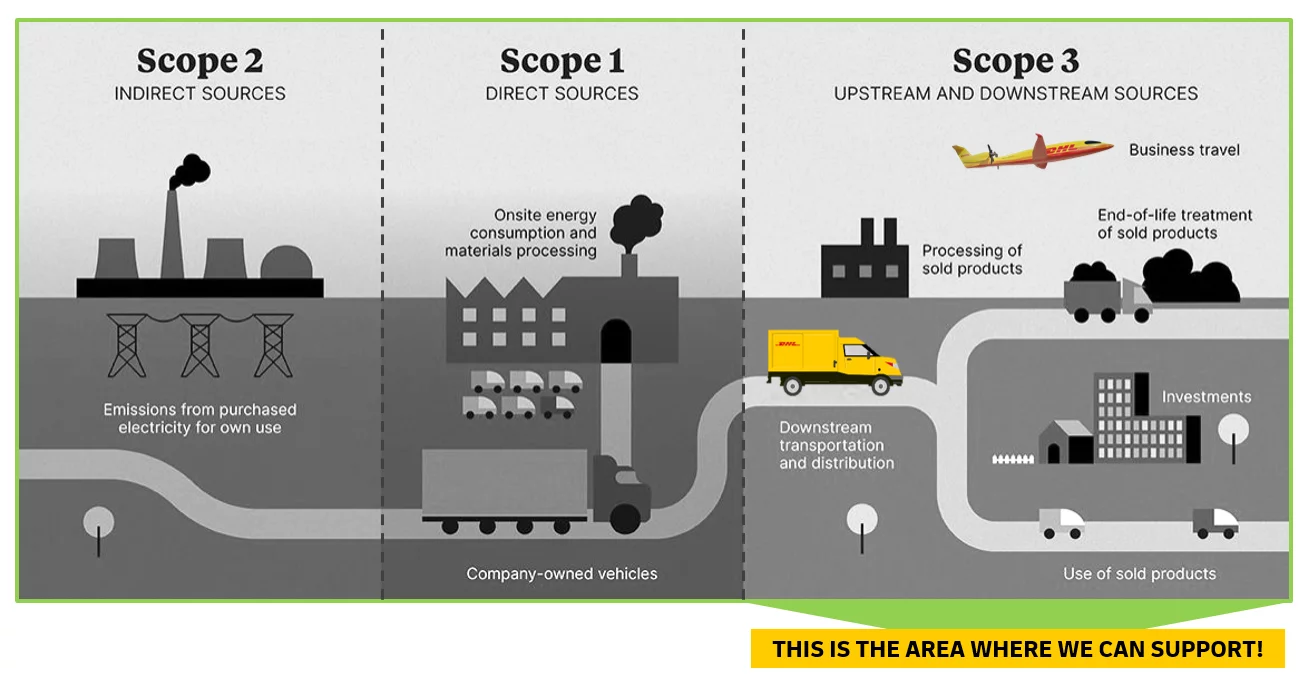
Scope 2 overs indirect emissions from the generation of purchased electricity, heating etc. consumed by the reporting company
Scope 3 includes all other indirect emissions that occur in a company's value chain, including downstream transportation and distribution
The Green House Gas Protocol Corporate Standard classifies a company’s GHG emissions into three 'scopes'
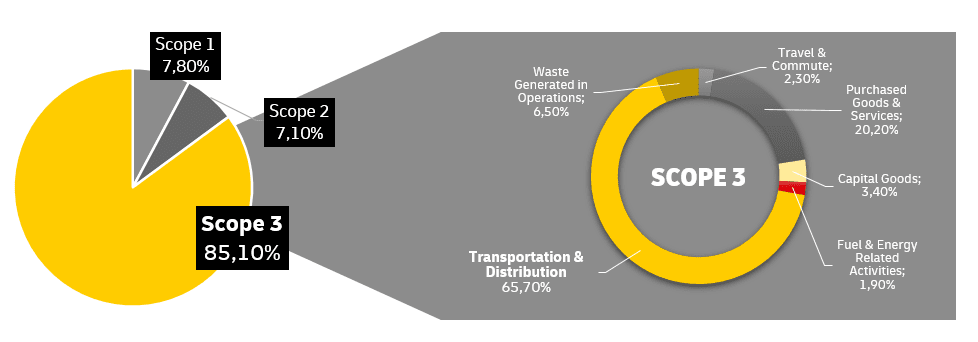
Companies are under increasing pressure to report and reduce scope 3 emissions – and soon it will become mandatory
Which means that companies have to report on their emissions besides only their financial results, and there is an increasing pressure on companies to report and reduce their scope 3 emissions
